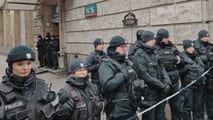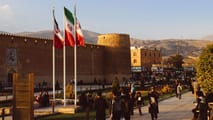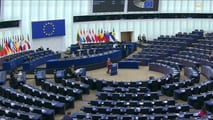International Law as a Weapon at the UN
July 23, 2009 - Morning Session - Day 2
This is an updated report from ACLJ Special Counsel Anne Herzberg on Day Two of the United Nations meeting in Geneva:
The “Question of Palestine” conference is akin to a trial where Israel is the defendant; the US, a co-conspirator, and the UN plays prosecutor. In this courtroom, however, there is no defense allowed. As we have reported, the State representatives laid out the charges. They then called “witnesses” who provided their “evidence” at the next session. During the morning session on Day 2, we heard the “expert testimony” declaring Israel to be in violation of international law and ways in which to punish the country.The exploitation of international legal rhetoric has become the weapon in the political war to delegitmize military operations conducted by democracies facing asymmetrical warfare. The panelists invoked this language repeatedly. Vera Gowlland-Debbas, a professor of international law from Geneva, repeatedly claimed the ICJ advisory opinion against Israel’s security barrier and the “legal conclusions” reached by the court were binding on the international community. She discussed at length how Israeli policies amounted to “sanctions” and “collective punishment” against the Palestinians and how such measures were illegal under international law. At the end of her presentation and without a hint of irony, however, she demanded that the international community was obligated to impose “sanctions and collective measures” against Israel.
Other speakers included Italian Nathalie Tucci, Egyptian Minister, Moufed Mahmoud Shehab, and Charles Shamas, who all called for international action against Israel, including sanctions and international criminal prosecutions. Charles Shamas, HRW board member and co-founder of Palestinian NGO Al Haq, explored several ways in which the European Union could impose sanctions on Israel, including suspending trade agreements and blocking aviation traffic.
John Quigley, a professor at Ohio State and a research scholar at Moscow State University during the 1960s, provided troubling interpretations of international law. He claimed that “Palestine” was a state dating back to 1924 and that the prosecutor of the International Criminal Court should allow “Palestine” to bring charges before the court even though it isn’t a state party to the ICC treaty. Further, Quigley justified Palestinian violence by claiming there is a “right to resist”. He also stated that “in principle” there isn’t a basis for “recognizing Israel as a Jewish state” and the Security Council should have acted to prevent Israel’s founding after the announcement of the partition plan in 1947.








